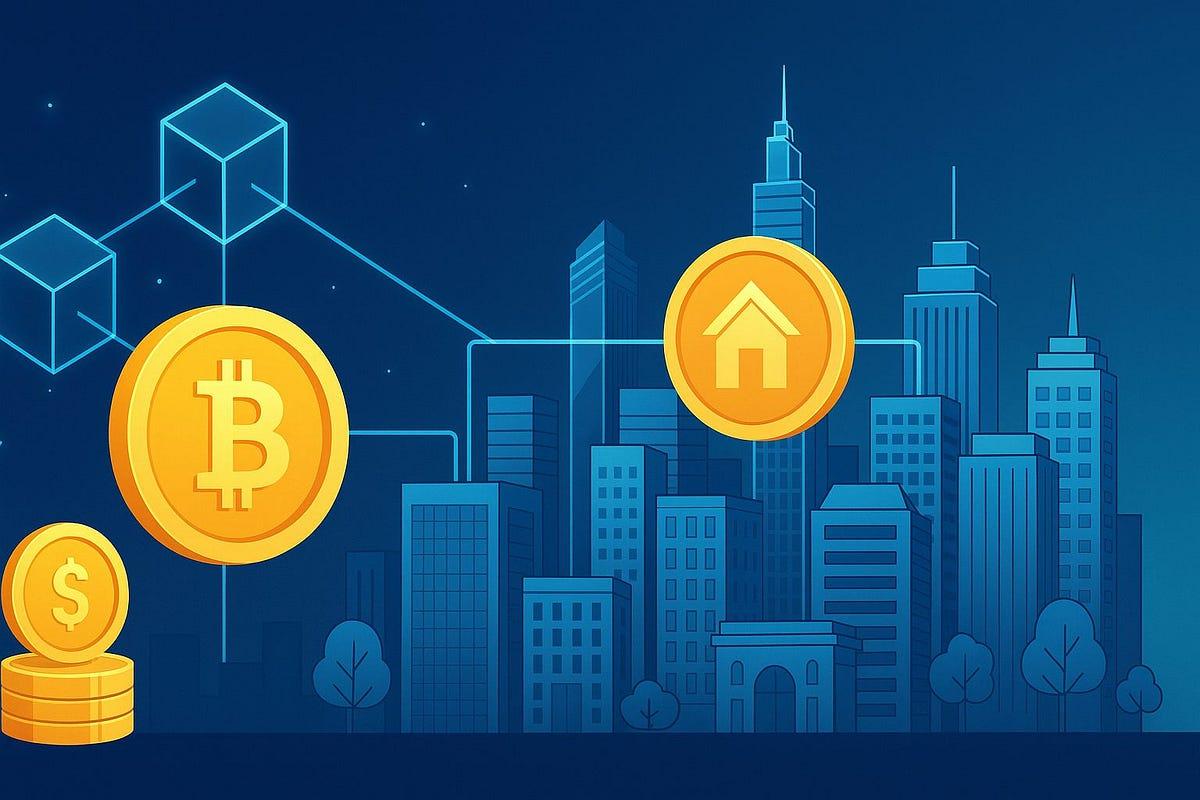Top 10 Reasons a Tokenized Real Estate Platform Is Transforming Property Investment in 2026

The real estate sector in 2026 is witnessing one of the biggest shifts in its history, driven by the rapid adoption of digital assets and blockchain-backed investment models. At the heart of this transformation is the rise of the tokenized real estate platform, a modern infrastructure that unlocks global access to property ownership using blockchain technology. What once required large capital, lengthy documentation, and complicated regulatory navigation is now becoming fast, secure, and accessible to investors worldwide. This evolution is also powered by advancements in White Label Real Estate Tokenization Platform Development, allowing businesses to launch compliant and customizable solutions without building technology from scratch.
Real estate tokenization is no longer an experimental trend. It has become a proven investment model that brings liquidity, transparency, fractional ownership, global access, and automation. With the continued growth of white label tokenization and increased demand for alternative investment opportunities, tokenized property assets are reshaping how investors participate in real estate. Below are the top ten reasons this technology is transforming the entire investment landscape in 2026.
1. Fractional Ownership Reduces Entry Barriers for Investors
Traditional real estate investment often required large upfront capital, limiting participation to wealthy individuals, institutions, and accredited investors. This limited accessibility has historically been one of the biggest challenges for aspiring property investors.
A tokenized real estate platform breaks down properties into digital tokens that represent fractional ownership. This means investors can purchase small fractions of a property instead of buying the entire asset. The presence of a White Label Real Estate Tokenization Platform enables businesses to tokenize high-value assets like commercial buildings, luxury villas, student housing units, or rental properties and make them available to global investors.
Fractional ownership makes it possible for everyday users to build diverse real estate portfolios without spending years saving for capital. It also protects investors from overexposure by enabling smaller investments across multiple assets.
2. Liquidity Increases Through Secondary Market Trading
Tokenized real estate platform has always been considered one of the most illiquid asset classes. Selling a property traditionally takes months due to negotiations, inspections, financing, and legal requirements. Even real estate funds and REITs often lack true liquidity.
In 2026, liquidity is one of the biggest advantages of real estate tokenization. Investors can buy or sell their property-backed tokens on secondary marketplaces powered by blockchain. This level of liquidity gives investors freedom to exit positions quickly, diversify portfolios faster, and manage risk effectively.
Companies leveraging White Label Real Estate Tokenization Services are integrating secure secondary trading modules, enabling seamless asset transfer between buyers and sellers. Blockchain ensures that transfers are instant, transparent, and traceable.
Liquidity turns real estate into an attractive asset class for both short-term and long-term investors.
3. Blockchain Transparency Builds Investor Trust
Investors in 2026 expect transparency in every financial transaction. With tokenized real estate platforms, blockchain plays a crucial role in preserving data integrity and trust. All transactions, ownership records, compliance workflows, and financial movements are recorded on a decentralized ledger.
This eliminates discrepancies, fraud risks, and information gaps, which have long plagued traditional real estate markets. Blockchain transparency also makes auditing and regulatory reporting easier, as all token movement is permanently stored and verifiable.
White Label Tokenization Platform providers integrate end-to-end transparency systems, ensuring that property investment becomes more predictable, secure, and investor-friendly.
4. Faster Transactions and Automation Cut Costs
A tokenized real estate platform automates many time-consuming tasks, including:
-
Agreement signing
-
Asset verification
-
Investor onboarding
-
KYC and AML checks
-
Distribution of rental income
-
Trade settlement
-
Compliance monitoring
Smart contracts execute these tasks automatically once predefined conditions are met. This reduces human error, eliminates middlemen, and greatly lowers transaction costs.
White label tokenization providers are helping businesses adopt automation-first workflows through White Label Real Estate Tokenization Development. This makes the entire real estate investment process faster, more efficient, and more scalable.
5. Easier Global Access to Real Estate Assets
Real estate investments were historically limited by geography. A person living in India might find it difficult to invest in a property located in the United States due to regulatory restrictions, complex documentation, and currency conversions.
Real estate tokenization solves this by giving users global access to property markets. Investors can purchase property tokens from any compatible digital wallet, without physically visiting the property, meeting brokers, or navigating foreign legal procedures.
White Label Real Estate Tokenization Services integrate compliance frameworks for multiple jurisdictions, enabling businesses to offer tokenized properties globally while staying compliant.
This global accessibility widens the investor base and attracts participation from users who previously could not afford international real estate.
6. Enhanced Portfolio Diversification for Risk Management
Real estate tokenization enables investors to spread funds across various asset types, including:
-
Residential properties
-
Commercial spaces
-
Resorts and hotels
-
Warehouses
-
Agricultural land
-
Co-working hubs
-
Student housing
Investors can purchase small fractions across each category, reducing risk exposure and creating a balanced portfolio.
A tokenized real estate platform supports multi-asset diversification because fractional ownership lowers entry thresholds. This diversification also stabilizes returns, as different market segments respond differently to economic trends.
The growing popularity of White Label Tokenization Platform solutions ensures businesses can tokenize various property types and attract a large investor base seeking diversified opportunities.
7. Improved Security and Compliance Through Blockchain
Regulatory frameworks around digital assets have become stricter and more structured in 2026. Tokenized real estate platforms now incorporate strong security protocols and real-time compliance mechanisms to ensure investor protection.
Security enhancements include:
-
Multi-layer authentication
-
Whitelisted wallet systems
-
Secure custody solutions
-
Encrypted data storage
-
Smart contract audits
Compliance is also built into the system using automated checks for regulatory requirements like KYC, AML, and investor accreditation.
White Label Real Estate Tokenization Platform Development providers make sure every platform is equipped with robust security controls, making tokenized real estate safer than many traditional investment models.
8. Increased Transparency in Property Valuation and Reporting
Tokenized real estate platforms improve the clarity of property valuation through blockchain records, digital documentation, and automated data feeds. Investors get real-time insights into:
-
Property market value
-
Rental income performance
-
Fractional ownership distribution
-
Historical pricing data
-
Transaction records
-
Maintenance expenses
This level of visibility was never possible in conventional real estate investing, where investors often rely on agents and third-party reports.
Through White Label Real Estate Tokenization Services, businesses can integrate real-time valuation engines and data dashboards into their platforms. This increases investor confidence and makes decision-making easier.
9. Minimum Operational Costs for Real Estate Businesses
Tokenization reduces operational friction for real estate developers, brokers, and investment firms by minimizing human involvement in tasks like property listing, onboarding, distribution, compliance, and reporting. Real estate tokenization also reduces costs associated with intermediaries such as brokers, escrow services, and legal teams.
Businesses using a White Label Real Estate Tokenization Platform reduce expenses by:
-
Automating workflows
-
Eliminating redundant intermediaries
-
Reducing paperwork
-
Speeding up transactions
-
Streamlining property management
Lower operational costs allow real estate companies to expand faster, improve customer experience, and increase profit margins. Many firms choose white label tokenization to launch market-ready platforms without investing millions in development.
10. Opens the Door to Institutional-Grade Investments
Institutional investors like hedge funds, private equity firms, and pension funds are increasingly entering tokenized real estate markets. Their participation is driven by:
-
Transparent governance
-
Automated compliance
-
Reduced transaction costs
-
Access to global real estate markets
-
Enhanced liquidity
A tokenized real estate platform provides institutional-grade infrastructure with audit trails, KYC automation, and secure custody systems. This makes it possible for institutions to invest confidently in real estate backed by blockchain technology.
The availability of White Label Real Estate Tokenization Platform Development is accelerating institutional adoption by offering pre-built solutions with customizable modules tailored for regulatory and operational needs.
The Future of Property Investment in 2026 and Beyond
As we move deeper into 2026, the adoption of real estate tokenization continues to grow rapidly. More enterprises, investment firms, startups, and property developers are embracing white label tokenization to unlock global investor participation. At the same time, retail investors are gravitating toward tokenized assets due to lower barriers, increased liquidity, and greater transparency.
Several emerging trends are shaping the future of tokenized real estate, including:
-
Integration with artificial intelligence for predictive market analysis
-
Real-time rental income distribution through smart contracts
-
Cross-border property purchasing using tokenized currencies
-
Tokenization of mixed-use real estate and large commercial projects
-
Increased adoption by governments and regulatory authorities
All these developments indicate that tokenized real estate is shifting from an alternative investment model to a mainstream global standard.
Businesses that adopt White Label Real Estate Tokenization Services early gain a competitive advantage by capturing a fast-growing investor community. Investors benefit from improved accessibility, faster transactions, enhanced safety, and broader diversification opportunities.
Real estate tokenization is not merely a technological trend. It is a structural transformation of the global property investment ecosystem, redefining how individuals and institutions own, trade, and monetize high-value assets.
Conclusion
The rise of the tokenized real estate platform in 2026 marks a pivotal moment in the evolution of global property markets. From fractional ownership and improved liquidity to transparency, automation, and global accessibility, tokenization delivers unparalleled benefits for investors and businesses alike. With White Label Real Estate Tokenization Platform Development accelerating adoption, every sector of real estate, from residential to commercial, is becoming more inclusive, efficient, and secure.
The top 10 reasons outlined above demonstrate how tokenized real estate is reshaping the future of property investment. As more companies embrace white label tokenization and regulatory frameworks continue to mature, tokenized property assets will become the new foundation of global real estate investing.
- Creative Multimedia
- Education & Innovation
- Business & Technology
- Sustainability & Ethics
- App & IT Development
- Community & Culture
- Thought Leadership
- Event
- AI & Robotics
- Craft
- Movie
- Fitness
- Free Peck
- Game
- Tutorial
- Health
- Music
- Networking
- Other
- Business
- Religion
- Shop
- Sport
- Wellbeing



